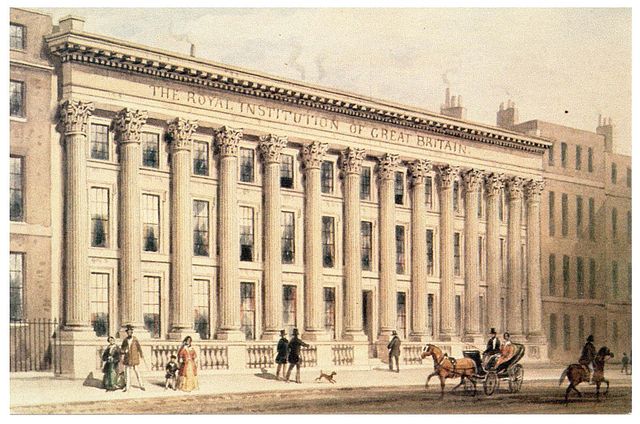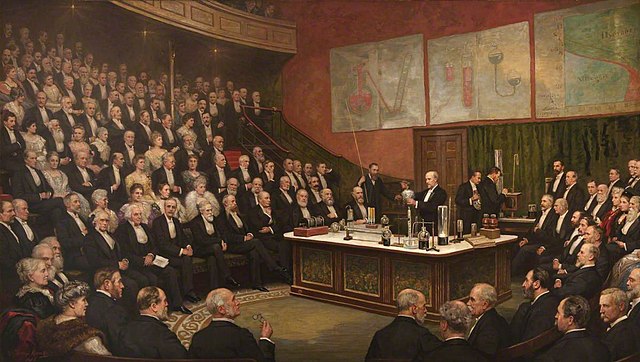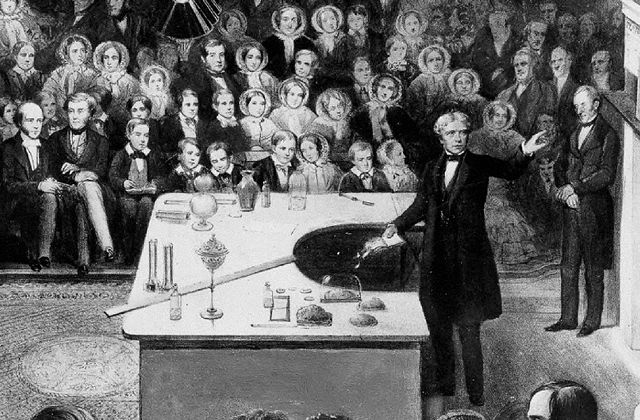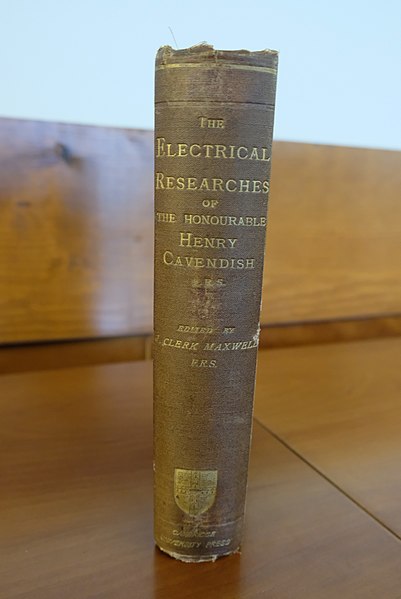The Royal Institution of Great Britain is an organisation for scientific education and research, based in the City of Westminster. It was founded in 1799 by the leading British scientists of the age, including Henry Cavendish and its first president, George Finch. Its foundational principles were diffusing the knowledge of, and facilitating the general introduction of useful mechanical inventions and improvements, as well as enhancing the application of science to the common purposes of life.
The Royal Institution building on Albemarle Street, London, c. 1838
A Friday Evening Discourse at the Royal Institution; Sir James Dewar on Liquid Hydrogen by Henry Jamyn Brooks, 1904
Michael Faraday's 1856 Christmas Lecture
The exterior of the Royal Institution in 2011
Henry Cavendish was an English natural philosopher and scientist who was an important experimental and theoretical chemist and physicist. He is noted for his discovery of hydrogen, which he termed "inflammable air". He described the density of inflammable air, which formed water on combustion, in a 1766 paper, On Factitious Airs. Antoine Lavoisier later reproduced Cavendish's experiment and gave the element its name.
Henry Cavendish
Cavendish's apparatus for making and collecting hydrogen
1879 copy of "The Electrical Researches of the Honourable Henry Cavendish F.R.S"
Title page of a 1879 copy of "The Electrical Researches of the Honourable Henry Cavendish F.R.S"








